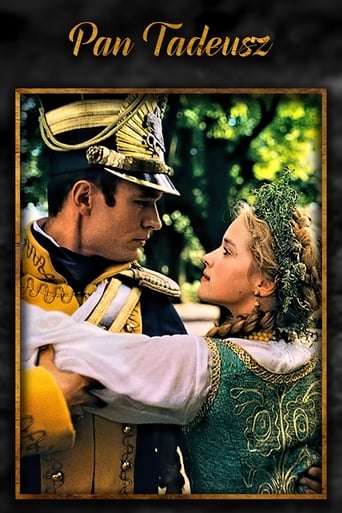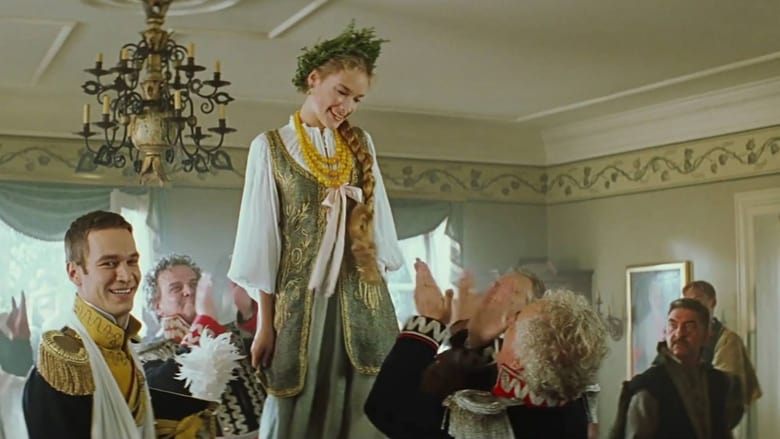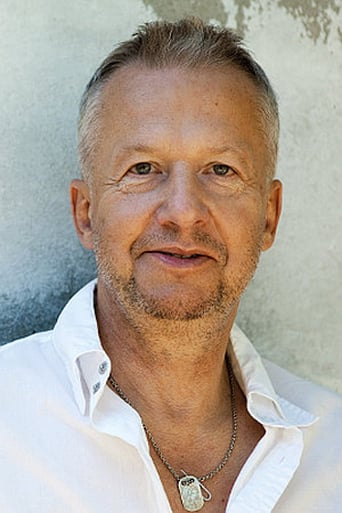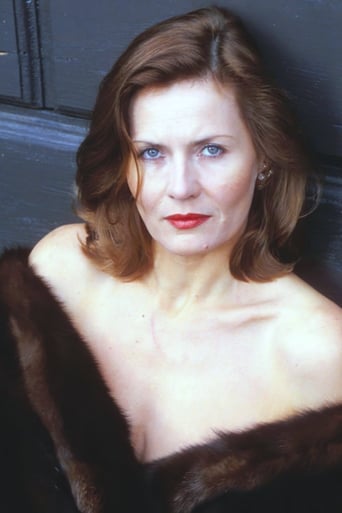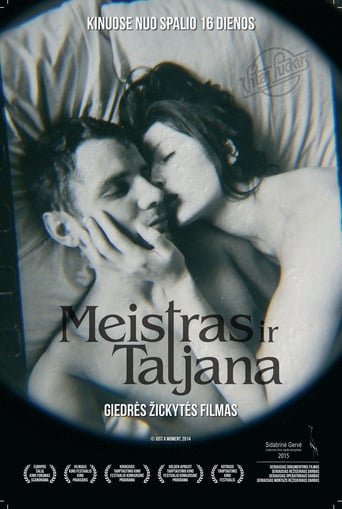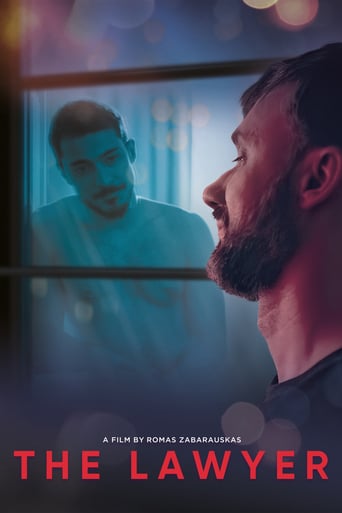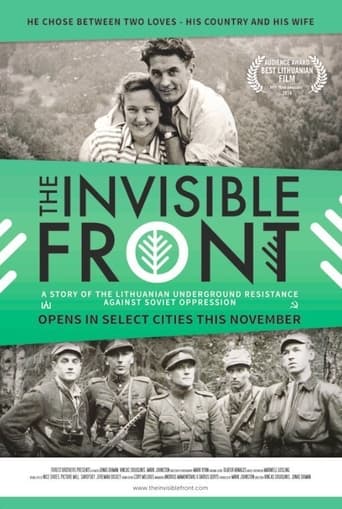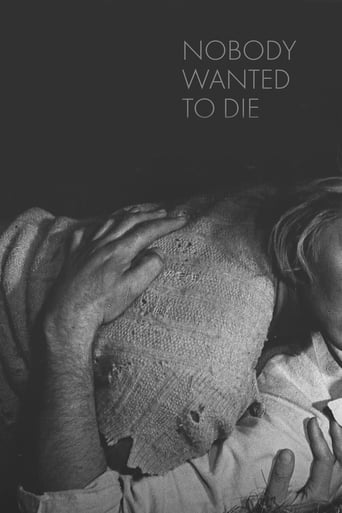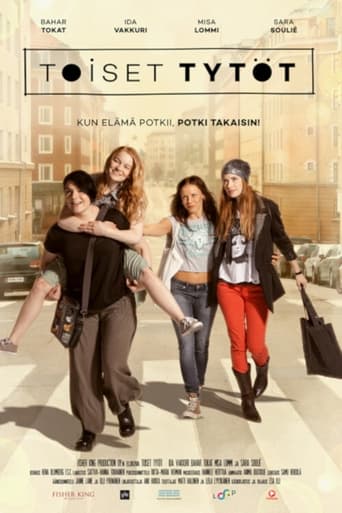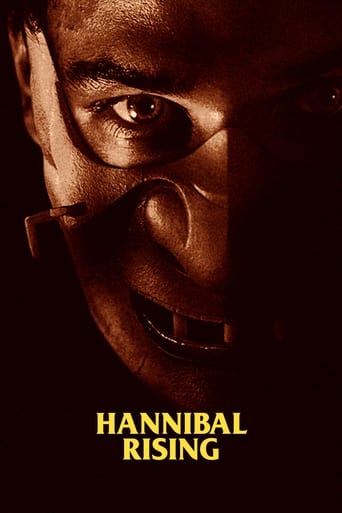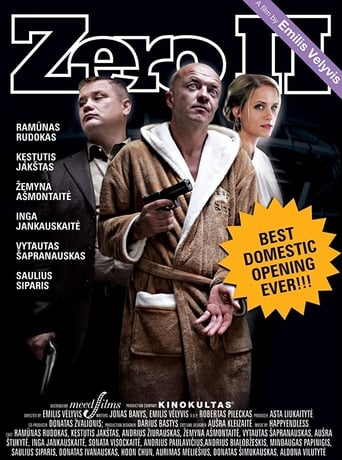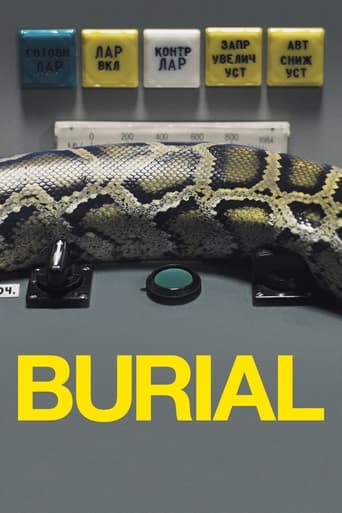Pan Tadeusz (1999)
A grand and patriotic tale of Poland's struggle for freedom just before Napoleon's war with Russia. Written in poetic style by Adam Mickiewicz, this story follows two feuding Polish families as they overcome their old conflicts and petty lives. However, they are able to unite as one with their patriotic and rebellious efforts to free the country they deeply love from Russian control.
Watch Trailer
Cast


Similar titles
Reviews
everything you have heard about this movie is true.
Good films always raise compelling questions, whether the format is fiction or documentary fact.
The thing I enjoyed most about the film is the fact that it doesn't shy away from being a super-sized-cliche;
Each character in this movie — down to the smallest one — is an individual rather than a type, prone to spontaneous changes of mood and sometimes amusing outbursts of pettiness or ill humor.
In the modern times absorbed so much by computers, technology, materialism, it seems that such values like love, patriotism, sense of beauty and quest for the sublime belong to the days of yore, the days of fairies, poets and nobles. Yet, on such occasions like national holidays that usually serve to remind nations of their identities, human thoughts go towards our ancestors, those who created a nation, played a decisive role in what we are and who we are now. And in this very spirit, on November the 11th when my country celebrates the Independence Day, my friends and I have decided to see the significant movie by Andrzej Wajda. It is worth stating here that the film, the action of which takes place in 1811 and 1812, 16 years after Poland was entirely partitioned among Germany, Austria and Russia, is based on the key work of Polish literature --- 12 Books of Verse titled PAN TADEUSZ and written in Paris in the 1830s by the famous Pole Adam Mickiewicz (1798-1855). The goals of watching being purely patriotic, the movie appeared to us as convincing, more to say, interesting from the very beginning. However, the experience of the movie was not merely a patriotic awareness that would truly be applied to a limited number of viewers but something much more, something I would like to share with other people no matter what nationality, upbringing, culture they are - a treasure that seems lost in most modern movies yet found in the great effort to craft cinematic productions based on classical literature. Certainly, it is a serious effort to adapt 1800s' romantic verses to the expectations of modern movie buffs..."O Lithuania, my country, thou Art like good health; I never knew till now How precious, till I lost thee." (translation by Kenneth R. Mackenzie)That is how PAN TADEUSZ by Adam Mickiewicz begins, that is how PAN TADEUSZ by Andrzej Wajda ends and what is in between? A great story of courage, love, sensation, uprising, honor, politics (in the times of Napoleon - a great hope for the partitioned Poland), confession and ... reconciliation: something classical, universal, touching, humane, pure and upright. One could indeed enumerate such adjectives... How does it work in practice? On the one hand, we have a particular focus on national identity and duty while, on the other hand, the emphasis is drawn upon particular characters. To view comes young Tadeusz Soplica (Michal Zebrowski) in love with two female characters: one is Zosia (Alicja Bachleda) – a 14-year-old girl of youthful, innocent joys; the other is Telimena (Grazyna Szapolowska) - a lady of extravagant behavior and tastes of luxury. In between come various characters, including impetuous Gerwazy (Daniel Olbrychski), young count-artist Horeszko (Marek Kondrat), and a humble priest Robak (Boguslaw Linda) who hides his secret till the very last hour of his life ... The factor that goes with characters and, more specifically, the manner we perceive them is the strongest point of the movie: performances. Although the task to play the roles and say their lines in poem appears to be particularly difficult, most of the cast craft their performances with exceptional flair. It is thanks to them that we all may feel the story go on naturally. Daniel Olbrychski is magnificent as Gerwazy focusing on the aforementioned impetuosity, Boguslaw Linda can be referred to as 'convincing modesty', Ms Szapolowska says her lines with desirable elegance and Michal Zebrowski together with youthful Alicja Bachleda are a fine staff for the couple in love.Since Mickiewicz payed particular attention to the descriptions of nature, the film does not skip this aspect. It can boast wonderful shots of the green fields, memorable clouds, returning storks, silent forests and beautiful sunsets. Being filmed in an artistic manner, it evokes a unique atmosphere and constitutes a sort of moving painting of idyllic landscapes. The narration by Adam Mickiewicz portrayed by Krzysztof Kolberger adds more importance to it providing the emotions of the author. The brilliant direction by Andrzej Wajda and the musical score by Wojciech Kilar supply a viewer with undeniable experience. Moreover, some scenes remain so intensely in the memory that any sensitive viewer (sensitive to art) will truly be absorbed by watching. Here, I would like to mention famous bear hunting, confession of Jacek Soplica and witty but elegant coffee making sequence. Just a pity there is not a famous mushroom picking tour described widely by Mickiewicz.If you asked me what this movie means to me, my answer would be simple: an experience for eyes and soul, great cinema which returns after a period of absence, which returns like the upright storks that long for the sublimity of patriot's homeland.
Andrzej Wajda has been a great director at least as far back as "Kanal" in 1957. Tough films, provocative themes.But why the costume drama? I really wish he'd left this one alone.It's not unlike 1999's other bloated Polish historical epic, "Ogniem i mieczem" ("With Fire and Sword"). Here again Poles put aside their differences to prove they're the greatest people, or at least the greatest Slavs, on Bóg's green earth. Rah, rah. A crowd of Polish lesser gentry (rabble) armed with swords can defeat trained Russian musketry any day.And, yes, I am of Polish descent myself, although I'm embarrassed to admit it in this jingoistic context. That's why I was at the special screening in the first place, sponsored by Toronto's Polish newspaper."Pan Tadeusz" shares another characteristic with its elephantine contemporary: its ability to confuse non-Polish-speaking members of the audience with its vast number of characters and their poorly defined interrelationships.Both films too have a sudsy quality. So did "Gone With The Wind", but then character definition makes that historical epic a success. Tadeusz and Zosia are indistinct phantoms as personalities. Certainly no Rhett or Scarlett."With Fire and Sword" is more melodramatic than "Pan Tadeusz", but it's also more exciting. This film has a laudable grandeur which Wajda brings to the proceedings, but still I wish he'd picked a subject with a bit more substance.Wojciech Kilar can be congratulated on his score. And Daniel Olbrychski is always good to see, even with scars all over his head.It should be noted that Polish-speaking spectators at the theatre appeared to find this film quite enjoyable. They would be chuckling at clever turns of phrase in the dialogue, while the English titles would be saying something indescribably prosaic. Evidently the film loses nearly everything in translation.
I saw this film last month. It was incredible film - but few people want give this movie the Oscar Award (!) I think that people in America don't understand this movie. Film was created by story Adam Mickiewicz's "Pan Tadeusz" (XIX age). Mickiewicz was the best poet in Poland, but only for us.
This film is based on the masterpiece "Pan Tadeusz" written by Adam Mickiewicz, a famous Polish poet in 1830. Adam Mickiewicz was born in Lithuania in 1798. At the time Lithuania and Poland were connected in a political union and many Polish families lived in Lithuania. Mickiewicz felt as a real Pole. This film is about the Polish nobilty in Soblicowo how they lead their normal lives - they party, hunt , go mushroom picking and fight with their neigbours. But everyone is waiting for Napolean, the French leader to liberate and save Poland. The director of this movie is famous Polish director. He is found in the imdb with more than 30 films of his career.One of the most beloved literary works in the history of Polish History, "Pan Tadeusz" was never adapted to the screen before. The cinematography of this film is marvelously done. It demonstrates the beautiful fields of Lithuania, with its natural pictures.The greatest part of the film was played by Daniel Olbrychski. He showed real emotion and a true actor. He is also a known actor in Europe, starring in films, in Poland, France and Russia.I encourage everyone to see this film to learn some history and have some fun!

